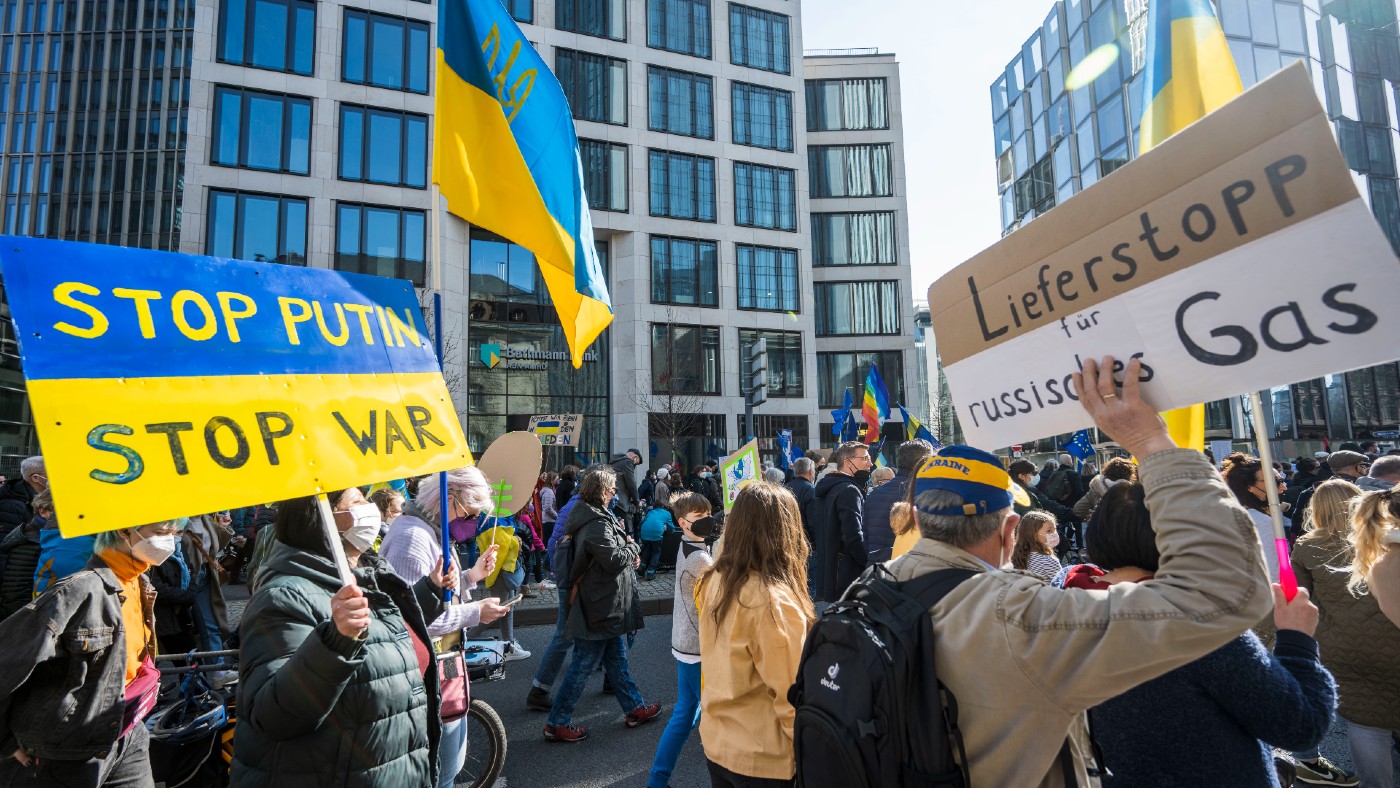How Germany’s gas crisis is a test of ‘European solidarity’
Will Germany still deliver sufficient gas to Slovakia, ‘even if its own industry is suffering’?

A free daily email with the biggest news stories of the day – and the best features from TheWeek.com
You are now subscribed
Your newsletter sign-up was successful
Germany is “preparing for a hard winter ahead”, said Deutsche Welle (Bonn). Last week, the Russian state energy giant Gazprom closed down the Nord Stream 1 pipeline for ten days of routine maintenance. There are real fears that the pipeline, which transports 55 billion cubic metres of natural gas every year to Germany (more than half of its total usage), may not reopen.
Last month, Russia cut flows to 40% of Nord Stream’s total capacity. It claimed that this was because of sanctions; a crucial turbine being serviced in Canada had not been returned. But the move was generally regarded as a strategy by the Kremlin to put pressure on Berlin over its support for Ukraine. And at the moment, Germany’s gas storage facilities are only 65% full, which is not nearly enough to guarantee supply through the winter.
In Berlin, officials have declared a “gas crisis”, said Patricia Cohen and Melissa Eddy in The New York Times. “Already, landlords, schools and municipalities have begun to lower thermostats, ration hot water, close swimming pools, turn off air-conditioners, dim street lights and exhort the benefits of cold showers.” Germany also faces an imminent recession. Its economy is built on industrial giants that consume vast amounts of imported fuel. The chemical and pharma industries alone use 25% of the nation’s gas supply.
The Week
Escape your echo chamber. Get the facts behind the news, plus analysis from multiple perspectives.

Sign up for The Week's Free Newsletters
From our morning news briefing to a weekly Good News Newsletter, get the best of The Week delivered directly to your inbox.
From our morning news briefing to a weekly Good News Newsletter, get the best of The Week delivered directly to your inbox.
The coalition government’s reaction does not inspire confidence, said Daniel Gräber in Cicero (Berlin). The economics minister Robert Habeck, from the Green party, lectures us on taking short showers, but wants to press ahead with the phasing out of Germany’s last three nuclear power stations late this year. He argues that the country has a “heating problem, but no electricity problem”, and that “nuclear power doesn’t help at all”. This is “absurd”. If gas becomes scarce in the winter, people will use electric heaters. Taking a reliable, carbon-neutral energy source offline at this moment in time is crazy.
If the gas doesn’t come back on, it will be a major test of Germany’s commitment to Ukraine, said Der Spiegel (Hamburg). It will also be a test of “European solidarity”. Germany is Europe’s main transit hub for gas. Will it still deliver sufficient gas to Slovakia and the Czech Republic, “even if its own industry is suffering”? Or will it allow people further east to freeze while it props up its own economy? Like the euro crisis before it, the gas supply shock has the potential to be a disaster for a “united Europe”.
A free daily email with the biggest news stories of the day – and the best features from TheWeek.com
-
 The ‘ravenous’ demand for Cornish minerals
The ‘ravenous’ demand for Cornish mineralsUnder the Radar Growing need for critical minerals to power tech has intensified ‘appetite’ for lithium, which could be a ‘huge boon’ for local economy
-
 Why are election experts taking Trump’s midterm threats seriously?
Why are election experts taking Trump’s midterm threats seriously?IN THE SPOTLIGHT As the president muses about polling place deployments and a centralized electoral system aimed at one-party control, lawmakers are taking this administration at its word
-
 ‘Restaurateurs have become millionaires’
‘Restaurateurs have become millionaires’Instant Opinion Opinion, comment and editorials of the day
-
 Corruption: The spy sheikh and the president
Corruption: The spy sheikh and the presidentFeature Trump is at the center of another scandal
-
 Putin’s shadow war
Putin’s shadow warFeature The Kremlin is waging a campaign of sabotage and subversion against Ukraine’s allies in the West
-
 The fall of the generals: China’s military purge
The fall of the generals: China’s military purgeIn the Spotlight Xi Jinping’s extraordinary removal of senior general proves that no-one is safe from anti-corruption drive that has investigated millions
-
 Epstein files topple law CEO, roil UK government
Epstein files topple law CEO, roil UK governmentSpeed Read Peter Mandelson, Britain’s former ambassador to the US, is caught up in the scandal
-
 Iran and US prepare to meet after skirmishes
Iran and US prepare to meet after skirmishesSpeed Read The incident comes amid heightened tensions in the Middle East
-
 Syria’s Kurds: abandoned by their US ally
Syria’s Kurds: abandoned by their US allyTalking Point Ahmed al-Sharaa’s lightning offensive against Syrian Kurdistan belies his promise to respect the country’s ethnic minorities
-
 Israel retrieves final hostage’s body from Gaza
Israel retrieves final hostage’s body from GazaSpeed Read The 24-year-old police officer was killed during the initial Hamas attack
-
 China’s Xi targets top general in growing purge
China’s Xi targets top general in growing purgeSpeed Read Zhang Youxia is being investigated over ‘grave violations’ of the law